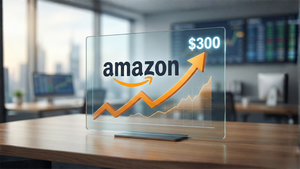CHICAGO, April 17, 2025 (GLOBE NEWSWIRE) -- Numerator, a data and tech company serving the market research space, has released consumer sentiment and purchase data findings around “Economic Blackout” events, a series of consumer spending boycotts organized by The People’s Union USA activist group. With the next Economic Blackout scheduled for April 18–20, 2025, Numerator surveyed 2,000+ consumers on April 15 to understand participation intentions and analyzed verified purchase behavior for the previous Economic Blackout on February 28th to understand consumer response.
April 18–20 Economic Blackout – Consumer Survey Findings:
- More than 1 in 10 consumers plan to participate – down from February. 12% of U.S. consumers say they will abstain from shopping on April 18–20, down from the 16% who said they planned to participate in the February 28 event. Millennials were the most likely generation (16%) to say they will participate, followed by Gen X (13%), and Gen Z (12%), and Boomers+ (10%).
- Awareness of the April event is lower than the February event and highest among minorities. About one-third of U.S. consumers (31%) say they are aware of the April Blackout, down from 38% in February. Awareness is significantly higher among Asian (45%), Hispanic / Latino (45%), and Black (44%) consumers.
- The majority of consumers support the protest, though opposition is growing. Among those who are aware of the protests, 58% say they support the goals or purpose, while 18% say they oppose it (+7 points vs. February)
- Not all participants plan to fully stop spending during the blackout. 63% of participants say they will avoid non-essential purchases during the event, while 58% will avoid shopping at major chain retailers and 53% will avoid fast food chains & restaurants. Only about half (52%) of intended participants plan to avoid spending any money at all.
- Participants are targeting big box stores during the Blackout. The top retailers that participants intend to avoid are Target (70% of participants), Walmart (66%), and Amazon (65%), though Target was the only retailer to see an increase from the February 28 event (+2 points). Other businesses that consumers intend to boycott include McDonald’s (46%), Starbucks (45%), Sam’s Club (41%), Walgreens (36%), CVS (32%), Costco (27%), and Kroger (25%).
- Nearly half of participants will shift to local businesses for any essential spending. When asked how they will approach spending in relation to the Economic Blackout, participants said they will shift purchases to local businesses (47%), forgo certain purchases entirely (36%), pause purchases during the Blackout period (22%), delay certain purchases until after the Blackout (21%), and make purchases in the days leading up to the Blackout (17%).
February 28 Economic Blackout – Verified Purchase Data Findings:
- While household penetration, sales, and trips were down across retailers and channels during the first Blackout on February 28, these changes were not statistically significant. Compared to an average Friday, household penetration was down by 2 percentage points, sales fell 5.4%, and shopping trips were down 4.1%. While noticeable, these dips did not meet the threshold for statistical significance.
- However, Amazon, Target, and Walmart saw declines beyond standard week-to-week variation. Household penetration at these retailers dropped to 22.7% (-2.2 points), which was a statistically significant decline. While drops in sales (-6.2%) and trips (-7.5%) did not quite hit the significance threshold, they were notably steeper than the total market declines.
- Black consumers showed the most significant purchasing pullbacks during the February 28th Economic Blackout. Among Black shoppers, relative penetration across all channels and retailers dropped 10.1 points, with sales down 18.7% and trips down 17.6%. Black households collectively spent fewer than $1B the Friday of the Blackout—a drop of more than $220 million and the only time that has occurred in the past year.
- Amazon, Target, and Walmart saw even bigger drops among Black consumers. At Amazon, Target, and Walmart, penetration among Black shoppers fell 6.6 points, with a 24.9% sales drop and 27% fewer trips.
- LGBTQ+ shoppers also registered statistically significant changes. Relative penetration dropped by 4.7 points at a total market level for LGBTQ+ consumers.
Numerator’s February 28 Economic Blackout Survey was fielded on 2/27/2025 to 1,389 U.S. consumers. Numerator’s April 18–20 Economic Blackout Survey was fielded on 4/15/2025 to 2,007 U.S. consumers. Results of the February 28 Economic Blackout are based on verified purchase data from over 200,000 U.S. households and benchmarks 2/28/25 shopping behaviors to the average Friday in the past year.
About Numerator:
Numerator is a data and tech company bringing speed and scale to market research. Numerator blends first-party data from over 1 million US households with advanced technology to provide 360-degree consumer understanding for the market research industry that has been slow to change. Headquartered in Chicago, IL, Numerator has 5,800 employees worldwide; 80 of the top 100 CPG brands’ manufacturers are Numerator clients.

Bob Richter Numerator 212-802-8588 press@numerator.com





